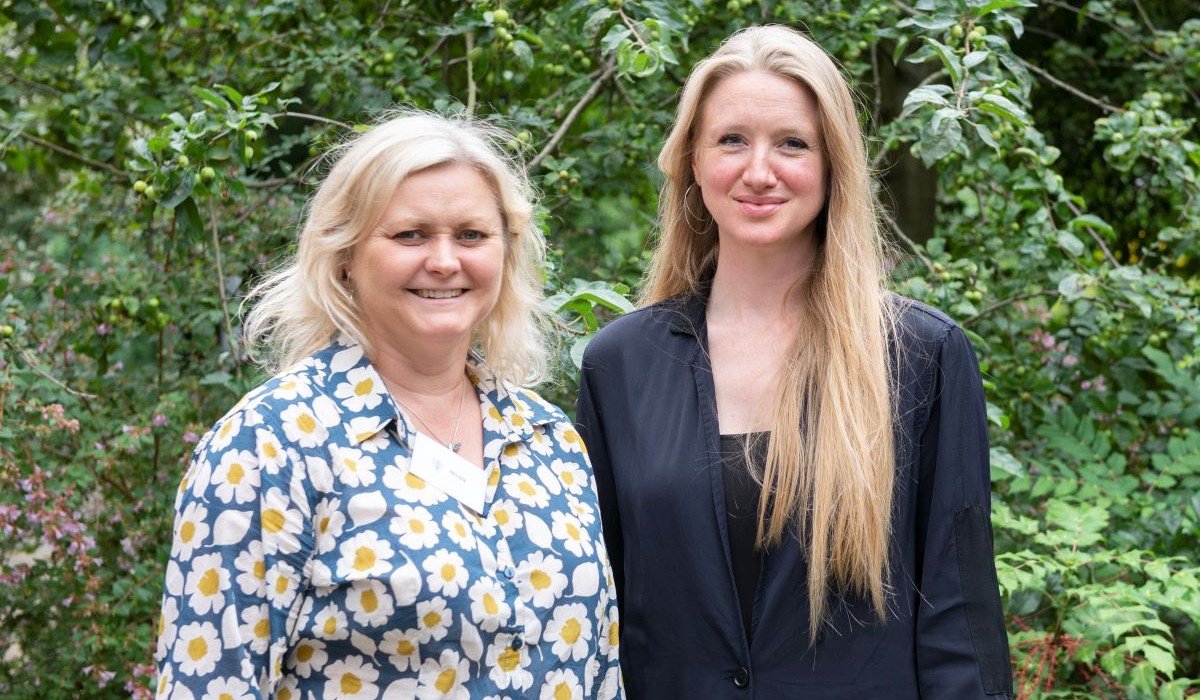The second pair from the Connections project, Nicola and Rebecca, on the meeting of minds.
You might think there is little overlap between a poet’s life and that of a scientist but think again! Science is often seen as formulaic; governed by hypothesis, experimental tests and data analysis, and scientists are white coat-wearing, jargon-wielding academics. Poetry can take many forms such as an ode, free verse, haiku and impressions of poets may be that they are arty, free-thinking individuals with a unique view on a subject that may be in a format that many find difficult to approach. However, when Rebecca and I got together to better understand each other’s world we found a lot of overlap. There is an intellectual process behind developing a poem such that the poet’s idea can be best realised on paper – the text, the layout, the font – in the same way as there is in deciding the right scientific question to ask and how to design the experiment that will give you the best chance of answering that question. There is a level of creativity and ‘scientific’ or rational method to each of these approaches. Likewise, poets and scientists both want their written work to be accessible and that involves draft versions, peer review and often lengthy revision prior to publication of a finished piece of work.
Naturally, scientists have a predominantly scientific audience for publishing their work, but public engagement has been gaining ground over a number of years – where would Sky at Night be if it was presented by an academic who couldn’t make it understandable by an interested public? Thus, we had an enjoyable time at the kick-off event getting to know what drives our work.
Rebecca’s poetry has an individual and family focus and conveying both emotion and emotional awareness is a key component. Her sparing use of language and the skill in conveying so much feeling appeals to me. I liked the way in which poetry can ‘respond’ to another medium – art or photography, taking some of Rebecca’s examples. My scientific interests are rooted in the role of viruses and public health – in a way, looking at the needs of the global family. My ‘interpretation’ is that of scientific data but it will also involve the combination with work from other scientists or from other branches of biology. As Rebecca and I talked, we started to break down linguistic and scientific boundaries. My impromptu drawings, while they would have made my school Art teacher weep, made some of the scientific descriptions far more accessible to a non-scientist so already there were the seeds of re-interpretation. It was interesting to me to see what phrases Rebecca picked up on – perhaps commonplace to me but an artist’s ear was hearing these afresh and with a different emphasis, perhaps. Same information, different viewpoint. I loved that – like two people responding differently to the same piece of music. We particularly talked around neglected diseases, leading us to think that not only is a virus perhaps neglected in terms of research and development because it is a rare occurrence, but that the people affected by sporadic virus outbreaks are, in themselves, largely neglected, unless one intervenes, or, tragically, it becomes newsworthy – think Ebola.
In the 18th Century, philosophers mused on ideas and concepts that nowadays we would label as scientific, and poets of the age showed a fascination in interpreting the notions of those philosophers. Sometimes there was a cross-over of interests from philosopher-poets. There was a connection between poetry and science then and there is now – it may just have had a lower profile in between times. Hopefully we will be able to add a new interpretative twist to virology through Rebecca’s creative poetry. We are just at the beginning, but it looks like we have made those first connections and we are off to an interesting start.
At an event on 26 October this year, eight Poet-Scientist pairs will deliver a poem they’ve created, based on their own scientific research and crafted with a poet’s creative skill. The Connections event, held at Lucy Cavendish College, is open to the public and will attract a diverse variety of people including scientists, creatives, college members, students and local school children.
About the authors
Dr Nicola Rose
Dr Nicola Rose is a principal scientist at the National Institute for Biological Standards and Control, in the Division of Virology. She has over 20 years’ experience in RNA viruses, models of infection and vaccination and host genetics; her scientific interests are in viral disease and vaccination.
Rebecca Goss
Rebecca Goss is the author of three full-length collections, most recently Girl (Carcanet, 2019). Carousel, her collaboration with the photographer Chris Routledge was published with Guillemot Press in 2018. She has been shortlisted for the Forward Prize for Best Collection, the Warwick Prize for Writing and the Portico Prize for Literature. In 2014, Rebecca was selected for the Poetry Book Society’s Next Generation Poets. She has a PhD by Publication from the University of East Anglia and was Creative Writing Fellow 2018-19 at Liverpool John Moores University.




